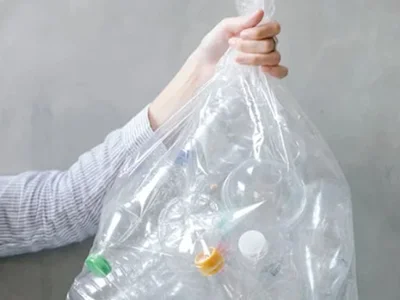Reclaim Waste for Beginners
Reclaim Waste for Beginners
Blog Article
All about Reclaim Waste
Table of ContentsThe Ultimate Guide To Reclaim Waste9 Simple Techniques For Reclaim WasteThe 20-Second Trick For Reclaim WasteThe smart Trick of Reclaim Waste That Nobody is DiscussingReclaim Waste for Dummies
Discover the types, incidents, and forms of liquid waste. Domestic sewer waste refers to the waste and products from a residential septic system. This type of waste is developed by people in residences, colleges, and other buildings. This only consists of sewage-disposal tanks that have a drainpipe field. The correct administration and disposal of residential sewer waste call for liquid waste to be transferred to a sewage therapy plant where the proper methods and tools are put on cleanse and take care of waste.
Business waste often includes prospective dangers, such as flammable products or a combination of fluid and strong waste products, and calls for an extra innovative and in-depth disposal process. The disposal of industrial waste normally entails the purification of waste prior to transportation to ensure safe and correct disposal. Industrial waste is created from by-products and overflow of commercial processes and production.
This type of waste can not use the same sewer administration transportation or processes as septic or business fluids. The industrial waste administration process requires the inspection and testing of liquid waste before it undertakes the disposal procedure (liquid waste disposal). Drainage waste is the liquid waste that originates from runoff and excess stormwater in highly inhabited locations or cities
Drainage waste can create contamination and flooding otherwise managed effectively. Discover more about sewer cleansing and waste management. Guaranteeing proper waste administration can avoid disasters and reduce ecological injury. Both people in residential setups and experts in commercial or production sectors can profit from understanding the processes and guidelines of liquid waste monitoring.
Excitement About Reclaim Waste
Contact PROS Services today to find out about our waste management and disposal solutions and the correct means to look after the fluid waste you create.
(https://www.imdb.com/user/ur191403836/?ref_=nv_usr_prof_2)This so-called 'wastewater' is not only a vital resource however, after therapy, will be released to our land, rivers or the sea. Made use of water from toilets, showers, bathrooms, kitchen area sinks, washings and commercial processes is understood as wastewater.

water utilized to cool equipment or clean plant and tools). Stormwater, a type of wastewater, is drainage that moves from agricultural and urban areas such as roofings, parks, yards, roads, paths and seamless gutters right into stormwater drains, after rainfall. Stormwater flows without treatment directly to local creeks or rivers, ultimately reaching the sea.
All about Reclaim Waste
In Queensland, the majority of wastewater is treated at sewage treatment plants. Wastewater is moved from residential or commercial sites through a system of drains and pump stations, recognized as sewage reticulation, to a sewage therapy plant.
The Division of Natural Resources recommends city governments concerning managing, operating and preserving sewage systems and therapy plants. In unsewered locations, city governments may call for householders to set up specific or home sewage therapy systems to deal with residential wastewater from toilets, kitchens, washrooms and laundries. The Division of Natural Resources authorizes using household systems when they are shown to be reliable.
The majority of stormwater receives no therapy. In some new neighborhoods, treatment of some stormwater to eliminate clutter, sand and gravel has begun using gross contaminant traps. Wastewater therapy occurs in four phases: Eliminates solid issue. Larger solids, such as plastics and other objects incorrectly discharged to sewers, are removed when wastewater is travelled through displays.
Wastewater after that moves into huge storage tanks where solids settle and are eliminated as sludge. Grease and scum are skimmed from the surface. Utilizes tiny living organisms referred to as micro-organisms to damage down and remove staying liquified wastes and fine particles. Micro-organisms and wastes are included in the sludge. Removes nitrogen and phosphorus nutrients that might create algal blooms in our waterways and threaten marine life.
About Reclaim Waste
Nutrient removal is not readily available at all sewage therapy plants due to the fact that it calls for pricey specialised devices. It is ending up being much more usual in Queensland. Clear liquid effluent created after therapy might still contain disease-causing micro-organisms. If this effluent is launched right into rivers such as rivers or the sea, the micro-organisms will at some point pass away out.

This generally suggests wastewater has actually to be dealt with or pollutants eliminated before it can be discharged to rivers. A lot of wastewater streams into the sewage system. Under the Act, regional governments provide authorizations and permits for environmentally appropriate tasks (ERAs) entailing wastewater releases that may have a regional impact. The division administers approvals and permits to ERAs involving wastewater releases that might have a regional or statewide influence.
The Reclaim Waste Diaries
Tracking provides factual information regarding water high quality and can confirm that licence problems are being satisfied. The info acquired through tracking gives the basis for making water top quality decisions.
Report this page